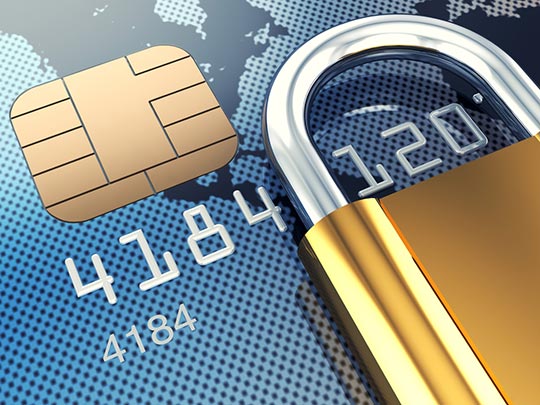There are software producers that are dedicated to security, safety, and to combat online crime. One of the guiding principles for CompuClever is to assist users in making their PC secure by removing confidential and private information such as banking and credit card data. There are many security vendors that protect our computers from viral attacks – viruses and malware and the like. We come to rely on these companies and trust they employ high standards of ethics. However, when it comes to the “bottom line” – money and the pursuit of profits – you need to be vigilant and you need to take precautions. In some cases, such as the example described here, you need to take a stand.
McAfee Forges Credit Card
McAfee is a security software company based in California which was purchased in 2010 by Intel for $7.68 billion. We are no less than shocked to experience first-hand that McAfee, a company whose objective is to protect its clientele from fraudulent behaviour, would go as far as to force a transaction by arbitrarily picking a new credit card expiry date. This was done all for the purpose of renewing a software service license. In this article we will provide an overview as follows. The specifics and details of this case can be seen in detail in our blog (provide link).
- We had been a McAfee Secure customer for the past four years until September 2012. We made a conscious decision to not renew our service contract by not updating our credit card information which had expired.
- McAfee went ahead to make the charge anyhow without notifying us or presenting us with the bill or invoice.
- The charge went through based on a forged credit card expiry date. American Express had accepted the charge and processed it without due diligence of the altered expiry date.
- We followed up with both McAfee and American Express. Refer to the blog article for details.
The Response
What has been the response from McAfee when confronted? Rather than apologizing and reversing the wrong-doing we had some alarming comments back from McAfee representatives. We were told that the onus was on us to provide a written notice to cancel our renewal. We were told that we needed to: “play according to the terms”. We were also told that the change to the credit card expiry date was the result of adjustments that occur within “the system”. These responses are indicative of a failure to take responsibility and to practice good ethics when conducting business.
McAfee has taken measures that resemble the classic case of a “bad cop” – someone who is on the take and have put themselves above the law. Their actions and lack of good practices (such as providing clear measures to exit the license subscription), are a form of entrapment. This transgression either reflects unethical business practices or in fact willfully fraudulent and illegal action. In either case, trusting the very businesses that prides themselves on protecting you from malicious and malevolent actions, is fundamentally taking advantage of the good faith we place in our day to day relationships and transactions.
How to Protect Yourself
The following list includes recommendation on how you can prevent these kinds of occurrences from happening.
- Be careful of entering a renewable products/service contract. Examine the details of how the renewal of a software license occurs. Be especially clear if it happens automatically with online banking.
- Be very clear of the cancellation policy. If you want to cancel it is best to have some evidence of this. Use email, fax, or write a letter to the service provider.
- Always review your credit card bill. Be vigilant for any items that are not authorized.
- Do not store credit card information with vendors and service providers as they can be misused as is clear in this case presented here.
- Guard your credit card information. Do not leave sensitive personal and private information on your PC or in any place that it can fall into the wrong hands.
Good Business Practices
There are business practices that we must expect from the companies we do business with. We need to set a standard. We need companies to gain our permission – explicit permission – when renewing licenses. We need to demand that companies not store our credit card information. One only has to recall how Sony was the victim of online theft not only once but twice in the beginning of 2011. The first time data thieves pilfered personal information that was not encrypted. The second time was a security breach that involved theft of over 12,000 credit card numbers.
At CompuClever we provide perpetual software usage (the user can continue to use the software indefinitely), that comes with one year of product updates and customer support which can be renewed. Prior to the expiration of the one year subscription, the user makes the explicit decision to renew product updates and customer support. We also make it our business to not store payment information. Every renewal is treated like a new transaction using trusted e-commerce service providers to keep confidential information safe and secure.
On Your PC
On a final note, securing credit card information and other confidential data needs to be a part of your security routine. If online theft can break through whatever systems Sony had in place, it’s a sure bet you could be a victim of online theft. The safest action you can take is to NOT store confidential data on your PC. PC Clean Maestro can assist you in keeping information from falling into the wrong hands.
Safety and ethical business practices go hand-in-hand. That is to say, you need to keep your information safe and be certain that the companies you deal with are using ethical business practices. We at CompuClever make it our business to re-define quality of service; we dedicate ourselves to re-establishing trust.

